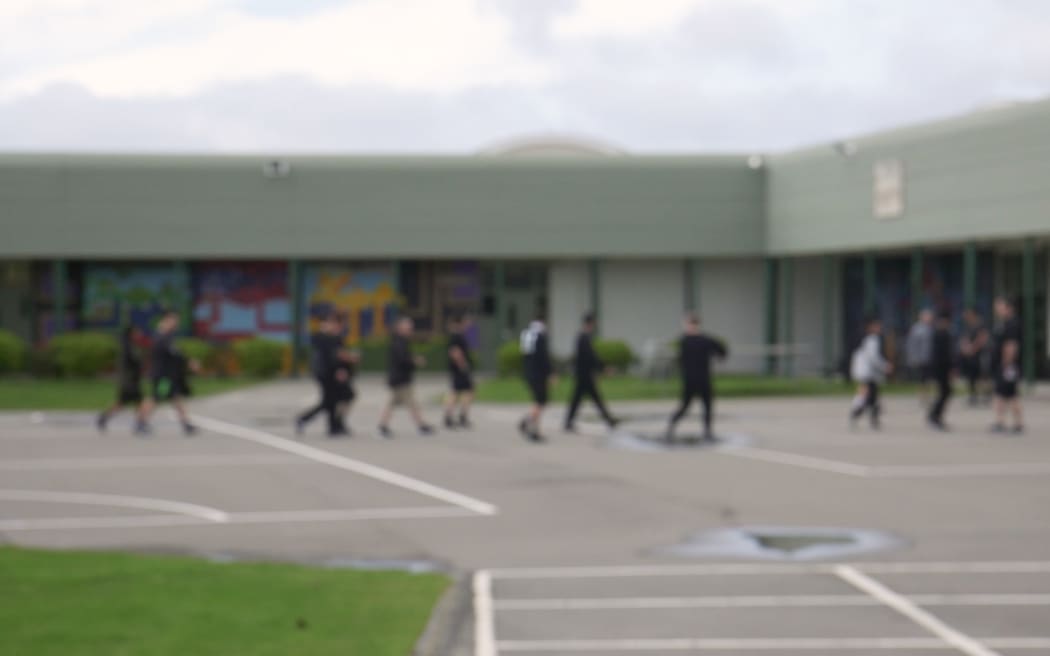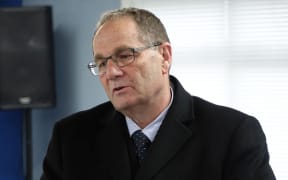
The facilities would have a military-style component as well as a rehabilitative and trauma-informed care approach, the Children's Minister said. Photo: RNZ / Cole Eastham-Farrelly
Critics of military style boot camps for young offenders say they do not work and will unfairly target those with disabilities or mental illness.
On Tuesday it was announced the first of the boot camps for serious young offenders promised by the coalition government would be operating by the middle of the year.
Children's Minister Karen Chhour said the announcement fulfilled the first 100-days commitment to crack down on serious youth offending.
But IHC said boot camps would unfairly target young people with an intellectual disability.
In a statement, IHC director of advocacy Tania Thomas said it ignored the preference to work with families and whānau to support the wellbeing of youth offenders - many who had an intellectual disability.
Māori were also disproportionately affected, she said.
"There is a growing body of evidence that boot camps may not be effective in reducing recidivism or achieving long-term positive outcomes for youth offenders," she said.
Thomas said that data showed that intellectually disabled people were 1.5 times more likely to have a criminal conviction and 3.2 times more likely to be incarcerated.
Professor Joanna Kidman was appointed as director of The National Centre of Research Excellence for Preventing and Countering Violent Extremism following the Christchurch mosque attacks.
On X (formerly Twitter), she said there was a huge amount of evidence that boot camps did not work and were expensive.
She said their introduction meant that she could only assume that the government hated children, most of whom would be brown and poor.
On X, Auckland youth development worker and advocate Aaron Hendry said there was clear evidence that boot camps were largely ineffective in reducing offending.
Hendry said he was also concerned that boot camps would suck up resources needed to prevent harm from occurring in communities.
Most of the children who caused harm had suffered trauma, abuse and neglect while a large percentage would have disabilities or be suffering from mental ill health, he said.
People needed to consider what their collective responsibility towards these children, he said.
"Punishment doesn't bring health, and if we want results, we need to look at the evidence, and stop reacting to crime and begin responding to what works," Hendry said.
I have a range of concerns about the implementation of these programs, but alongside the program lacking a clear evidential base, I am also concerned about these Boot Camps sucking up resources we require in the community to do that critical mahi in our communities needed to...
— A.J Hendry (@AeJayHendry) March 5, 2024
Cooper Legal, a law firm which specialises in human rights, said on X that boot camps do not have have never worked.
They represented a punitive approach that did more harm than good, it said.
Boot camps do not work. Boot camps have never worked. This punitive approach will do more harm than good.
— Cooper Legal (@CooperLegal) March 5, 2024
First boot camp for young offenders to be running by mid-year - minister https://t.co/CQHhhlEWE7
Green Party co-leader Marama Davidson told TVNZ it had been proven "time and time again" that military-style academies did not reduce offending and that they did more harm than good by insitutionalising young people in the justice system.
"They know that the evidence has never ever supported their policy position. What they are instead doing is dog whistling to fear and ignorance," she said.
"[It's] reckless, heinous and lazy."
Te Pāti Māori co-leader Rawiri Waititi told TVNZ the policy was a "return to the 60s and 70s".
"This is how gangs were created, through boot camps and borstals and boys' homes ... they want to get rid of the gangs but I think they're going to create them," he said.





